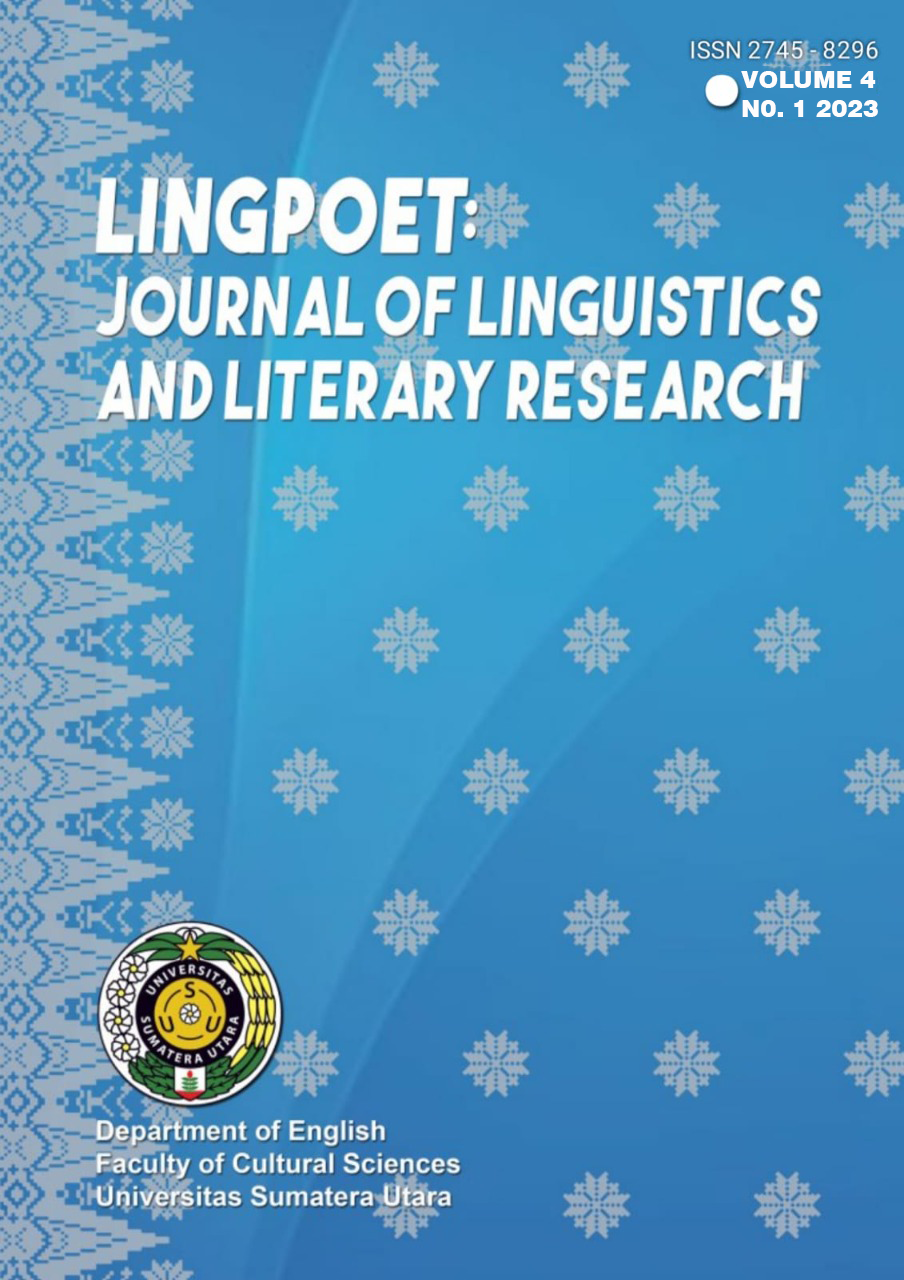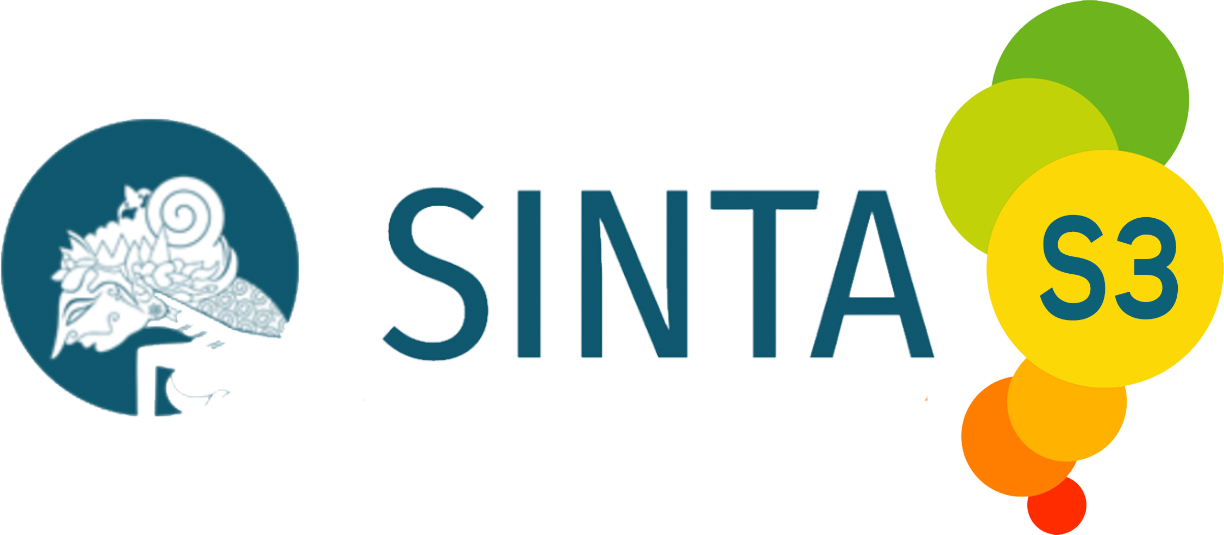Plotagon Training for English Teachers during the Covid-19 Pandemic
Keywords:
community service, digital technology, English teaching, online, PlotagonAbstract
A great majority of English teachers agree that it is crucial for them use to use digital technology to help students improve their foreign language skills. Many studies, however, show that the number of teachers who use technology in their teaching and learning practices is still limited. The lecturing method, discussion method, and follow-up study method were used to undertake the training activities. This study presents an overview of the training participants' reactions to the use of Plotagon in English learning, as well as the extent to which the participants understand how to create English dialogues using Plotagon. The use of online training turned out to have a significant impact on the characteristics of participants who interacted during the training. This technical skill weakness, however, could be compensated for by responding quickly when asked by the material provider via video conference. They believed that online tools should only be used as a supplement to the training process. Despite this, the majority of participants agreed that Plotagon was very useful for improving the quality of English learning, so the participants were enthusiastic about participating in the training even with all these obstacles.
Keywords: Community service; digital technology; English teaching; online; Plotagon
Downloads
References
Afidah, N., Hanifah, & Miskiyah, R. (2021). Developing video scribe as instructional media for junior high school students. Salience Journal, 1(2), 77–87.
Al-Dosari, H. (2011). Faculty members and students perceptions of e-learning in the english department: A project evaluation. J. Soc. Sci, 7, 391–407.
Alsaaty, F. M., Carter, E., Abrahams, D., & Alshameri, F. (2016). Traditional versun online learning in institutions of higher education: Minority business students’ perceptions. Business Management Research, 5(31).
Arkorful, V., & Abaidoo, N. (2014). The role of e-learning, the advantages and disadvantages of its adoption in Higher Education. Int. J. Educ. Res, 2, 397–410.
Babu, D. G. S., & Sridevi, D. K. (2018). Importance of e-learning in higher education: A study. Int. J. Res. Cult. Soc, 2, 84–88.
Cheung, C., & Cable, J. (2017). Eight principles of effective online teaching: A decade-long lessons learned in project management education. Proj. Manag. World J, 6, 1–16.
Coban, M., Eyisuren, I. I., & Uzun, L. (2021). Implementation of the Plotagon application in EFL speaking lessons: Its effect on speaking anxiety and student motivation. Proceedings of the Global Conference on Education and Research, 77–87. https://www.doi.org/10.5038/2572-6374-v4
Deng, C. G., Zhang, J., & Chang, H. Q. (2014). Technology and Application Effects of High-Speed Drilling in High Stone Ladder-Grinding Creek Block. Natural Gas Industry, 34, 115–120.
Ertmer, P., & Ottenbreit-Leftwich, A. T. (2010). Teacher technology change: How knowledge, confidence, beliefs, and culture intersect. Journal of Research on Technology in Educatio, 42(3), 255–284. https://doi.org/10.1080/15391523.2010.10782551
Ertmer, P., Ottenbreit-Leftwich, A. T., Sadik, O., Sendurur, E., & Sendurur, P. (2012). Teacher beliefs and technology integration practices: A critical relationship. Computers and Education, 59(2), 432–435. https://doi.org/10.1016/j.compedu.2012.02.001
Fives, H., & Buehl, M. M. (2012). Spring cleaning for the “messy†construct of teacher’s beliefs: What are they? Which have been examined? What can they tell us? APA Educational Psychology Handbook, 2 Individual Differences and Cultural and Contextual Factors, 471–499. https://doi.org/10.1037/13274-019
Guzman Gamez, D. Y., & Moreno Cuellar, J. A. (2019). The use of Plotagon to enhance the English writing skill in secondary school students. Profile: Issues in Teachers’ Professional Developmen, 21(1), 139–153. https://doi.org/10.15446/profile.v21n1.71721
Huang, F., Theo, T., & Zhou, M. (2017). Factors affecting Chinese English as a foreign language teachers’ technology acceptance: A qualitative study. Journal of Educational Computing Research, 57(1), 83–105. https://doi.org/10.1177/0735633117746168
Kim, C., Kim, M. K., Lee, C., Spector, J. M., & DeMeester, K. (2013). Teacher beliefs and technology integration. Teaching and Teacher Educatio, 29(1), 76–85. https://doi.org/10.1016/j.tate.2012.08.005
Kracauer, S. (1952). The Challenge of Qualitative Content Analysis. Public Opinion Quarterly, 16(4 (Special Issue on International Communications Research)), 631. https://doi.org/10.1086/266427
Krippendorff, K. (2004). Content Analysis: An Introduction to Its Methodology (2nd ed.) (2nd ed.). Sage.
Love, D. (2013). Turning your students into movie directors with Plotagon [Web log post]. https://digiteacher.wordpress.com/2013/11/25/turning-your-students-into-movie-directors-with-plotagon/
Odit-Dookhan, K. (2018). Attitude towards e-learning: The case of Mauritian students in public teis. PEOPLE Int. J. Soc. Sci, 4, 628–643.
Scherer, R., Siddiq, F., & Tondeur, J. (2018). The technology acceptance model (TAM): A meta-analytic structural equation modeling approach to explaining teacher’s adoption of digital technology in education. Computers and Education, 128, 13–35. https://doi.org/10.1016/j.compedu.2018.09.009
Stern, B. S. (2004). A comparison of online and face-to-face instruction in an undergraduate foundations of american education course. Contemp. Issues Technol. Teach. Educ. CITE J, 4, 196–213.
Suresh, M., Priya, V. V., & Gayathri, R. (2018). Effect of e-learning on academic performance of undergraduate students. Drug Invent Today, 10, 1797–1800.
Tondeur, J., Hermans, R., Braak, J. V., & Valcke, M. (2008). Exploring the link between teachers’ educational belief profiles and different types of computer use in the classroom. Computers in Human Behavior, 24(6), 2541–2553. https://doi.org/10.1016/j.chb.2008.02.020
Yıldırım, A., & Şimşek, H. (2013). Qualitative research methods in the social sciences. Genişletilmiş Baskı.
Zou, B. (2013). Teacher’s support in using computers for developing students’ listening and speaking skills in pre-sessional English courses. Computer Assisted Language Learning, 26(1), 83–99. https://doi.org/10.1080/09588221.2011.631143
Downloads
Published
How to Cite
Issue
Section
License
Copyright (c) 2024 LingPoet: Journal of Linguistics and Literary Research

This work is licensed under a Creative Commons Attribution-ShareAlike 4.0 International License.













